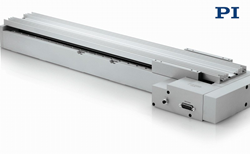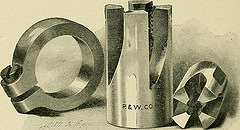
Auburn, MA (PRWEB) October 02, 2014
PI’s new M-417 linear stage provides 500 mm travel and half-micron resolution. This motorized precision positioner can be computer controlled for automation and precision assembly applications. The linear translation stage can manage higher duty cycles and boasts high velocity of one hundred mm/second. Precision recirculating ball bearings give guiding precision in the one hundred µrad range over the total travel range.

The low friction ball screw with a 2 mm thread pitch permits for maintenance free of charge operation and the integrated extremely effective PWM servo amplifier improves expense efficiency although simplifying installation and operation – no additional amplifier required. For instance, the M-417 can be driven by PI’s miniature, palm-prime C-863 Mercury servo motion controller.

Closed-Loop Operation, Limit & Reference Point Switches
An incremental optical rotary encoder with 4000 counts/rev controls the position delivering unidirectional repeatability of .5 µm. Non-contacting reference point and limit switches shield the mechanics from harm.

Dimensions and Application
The M-417 stage is 120 mm wide and 56 mm high. Its pressure-relieved aluminum base ensures the stage’s high stability. This low-profile positioning stage is well suited for automation and precision motion manage applications for science and market.

Far more info and datasheet: http://www.pi-usa.us/news/news_ka.php

Precision Linear Stage: Extended Travel, Low Profile, High Resolution

PI’s new M-417 linear stage gives 500 mm travel and half-micron resolution. This motorized precision positioner can be computer controlled for automation and precision assembly applications. The linear translation stage can manage high duty cycles and boasts higher velocity of one hundred mm/second. Precision recirculating ball bearings give guiding precision in the one hundred µrad variety over the complete travel range.

The low friction ball screw with a 2 mm thread pitch allows for upkeep free operation and the integrated extremely effective PWM servo amplifier improves expense efficiency although simplifying installation and operation – no added amplifier required. For instance, the M-417 can be driven by PI’s miniature, palm-best C-863 Mercury servo motion controller.

Closed-Loop Operation, Limit & Reference Point Switches

An incremental optical rotary encoder with 4000 counts/rev controls the position providing unidirectional repeatability of .5 µm. Non-contacting reference point and limit switches protect the mechanics from damage.

Dimensions and Application

The M-417 stage is 120 mm wide and 56 mm higher. Its stress-relieved aluminum base ensures the stage’s high stability. This low-profile positioning stage is well suited for automation and precision motion control applications for science and industry.

More info and datasheet:
http://www.pi-usa.us/news/news_ka.php

About PI
PI is a top manufacturer of precision motion control gear, piezo systems, piezo motors and actuators for semiconductor applications, photonics, bio-nano-technology and medical engineering. PI has been creating and manufacturing common & custom precision products with piezoceramic and electromagnetic drives for four decades. The company has been ISO 9001 certified considering that 1994 and supplies revolutionary, high-good quality options for OEM and research. PI is present worldwide with ten subsidiaries, R&D / engineering on three continents and total staff of 750+





